
The Lowdown:
November 7, 2013
November 2013 Featured Review
Those Darlins: Blur the Line
by Jason D. 'Diesel' Hamad
The morphing lineup of Those Darlins has solidified—for the moment, at least—on a four-person grouping with Jessi and Nikki solidly at the center. (l-r) Linwood Regensburg, Nikki Kvarnes, Jessi Zazu, and Adrian Barrera. Photo by Veta&Theo.
Those Darlins have changed a lot since their 2008 debut. Beginning as an all-girl cowpunk trio with a kick ass attitude, their sophomore effort saw them shed their country roots and move into garage and punk rock territory while adding a drummer (a dude, no less). That album, Screws Get Loose, marked a transition not just in sound, but in substance as the focus changed from “Hey, look at what a badass I am!” drinking anthems to “Hey, I’m pretty vulnerable, too” introspective examination. It was a subtle change, partially masked by songs about geographically diverse groupies and compulsive overeating, but it was an important change nonetheless. Then founding member Kelley Anderson left the group, taking her bouncy guitar and model-quality blondness with her, leaving a hole that I don’t believe any of the three remaining members will admit was quite as big as it actually was. In preparation to record their third album, Blur the Lines, this void was filled by founding member Nikki transitioning to full-time guitarist and adding Adrian Barrera, yet another phallused-American, as bassist. In the space of just a half-decade, the band has gone from a rabblerousing punk-powered but country-flavored bad girl trio to an introspective still-punky but rock-centered maybe-we’re-not-so-bad gender-neutral quartet.
The band’s members will tell you most of these changes aren’t that important—and maybe from the inside they’re not—but as someone analyzing the band in an attempt to understand their work, there’s no getting around them. Jessi will tell you, for instance, that they never thought of themselves as a girl band, just a band that happened to be made up of three women, and that they never liked being classified by who they were rather than what they did. Fair enough. But when a group of young women gets up on stage in front of imaginary god and everyone, flaunting their sexuality and singing songs about how wild they are, they are challenging the thinly-defined conception of gender roles that predominates our society and so they are posing a direct challenge, even if ever so slight, to the male-dominated power structure. Yes, that is a big deal. Given that art is often the vanguard of where culture writ large is headed, it’s actually a pretty big fucking deal.
And when you give her time to think about it, even Jessi will admit that fact. She gets that she’s a role model, whether she wants to be or not, and understands that when one gets an opportunity that few others enjoy, one oughta have something more important to say than, “I can drink you under the table!” That’s another transition that is evident within the band: maturity. The introspective songwriting that both Jessi and Nikki now employ might be the hallmark. They’re discovering more about who they are as individuals and trying to both analyze and cope with themselves through their art, but there are other signs as well, more minor transitions. Relegated to the closet, for instance, are Jessi’s shiny sequined leotards and fishnets—a get-up that certainly screamed, “I need attention (and I’ve got a cute ass!)” but never really quite fit with the band’s image as a whole or allowed her to break through the split-personality sex symbol she was trying to personify. That look has now been replaced by a more androgynous—Yeah, I’m a tomboy, so the fuck what?—look, perhaps more true to herself look. And in another subtle change, Blur the Line is the first album in which Nikki and Jessi are credited under their own names—Kvarnes and Zazu, respectively—rather than the Darlin nom de guerre they adopted along with Kelley when they first spit in their hands and shook to form the band. After all, it’s hard to write introspective pieces that really cut to the core of who you are as a person when you’re living your whole life as a character created for the stage. And have no doubt, Jessi and Nikki are still the heart and soul of Those Darlins and always will be no matter how many swingin’ dicks they’ve got behind them.
In one way or another, all of these transitions affect the final product of Blur the Line, and yet even as their work has grown more lyrically complex, their music has jumped genres, and even the members of the band have changed, the main message of Those Darlins remains and may, in fact, be clearer now than ever: Be yourself; be a badass.
Perhaps the two most important pieces on the album bookend the collection, the opener “Oh God” and the closing hidden track “Blur the Line.” Like last album’s “Screws Get Loose” and “Be Your Bro,” they set something of a thematic tone for the album and are both relatively personal pieces penned by Jessi. Unlike that pair, however, they are slower and more reserved rather than barnburners, they take the personal introspection to whole new levels, and rather than outliers they serve as signposts along the way through an album that is much more thematically integrated throughout.
“Oh God” is a completely impressionistic piece, relying on expressive lyrics, dark, reverb-heavy vocals and stark, disconcerting music to create a mood of sensuous disquietude that cuts straight into the listener’s chest. This restiveness is augmented by the brilliant way that the song very specifically details the physical environment while leaving elements of plot and theme purposefully up in the air.
For instance, the song opens with a portrait of the narrator’s surroundings—obviously those of a musician on tour:
I was a drunk girl in the shower
In yet another shit hotel.
I could’ve been just anywhere.
The towel I held.
As the song reaches its midpoint, the descriptions remain vivid, but they take on a surrealistic bent, like the observer is floating through the world described rather than living within it:
Well, after every toilet seat
And every ashtray of a night…
The gas pump sidewalk sort of days…
I smell the fumes.
As the piece reaches its nadir, the already dark scene takes an even more unsettling turn:
Oh, god, I heard you whine and moan.
Well, as I pressed it to my ear
I could hear you whine and moan.
In a frantic voice you asked
“What have I done?
Oh, god, what have I done?”
Rather than seeking to answer that final question, the song leaves it entirely uninterpreted, a lack of resolution that leaves the listener entranced yet ill at ease.
The economical music—consisting of a guitar, bass and drums played in such an understated manner as to be almost folded into the strained tone of Jessi’s voice—mirrors the crumbling façade of composure evident in the lyrics, adding small perturbatious licks that steadily build toward a turbid peak that climaxes rather than crescendos, reaching a height of unease barely louder than at the start but thicker, more manic, and dancing on the edge of a flailing guitar.
Rarely is an album’s title track a hidden one, and rarely is a hidden track the album’s best, but (with definite competition from the opener) both are the case here. Jessi’s writing is most compelling when it’s most personal, and this tribute to her own neuroses and maladjustment hits every mark. Perhaps ironically for a woman who has spent much of her adult life half dressed under stage lights (and who occasionally has herself filmed simulating masturbation), she has likely never been more naked than in this song. The opening is heartbreaking and poignant enough for any dozen songs, but accomplishes its aim in just a few syllables:
Could you love this paranoid mess?
You don’t know it but I battle everyday.
It’s a contest bein’ honest,
Chasin’ demons make ‘em singin’ what I say.
But that rending, ultra-vulnerable imploration for affection and acceptance is far from the only hard hitting piece of writing in the song, which never lets up in its knife-edged self-examination:
On blank paper try to face her.
Turn away too scared to do it on my own.
I’m an evil with a steeple.
Hallelujah nothin’s right and nothing’s wrong.
Stars burn bright; stars burn white.
Tonight and every single night
I blur the line.
“This whole album was just a huge process of personal growth and self-exploration,” Jessi explains. “This one night I just wrote all night long and it was the most intense experience I’ve ever had doing any type of art. It was like I was not even myself. All this stuff was coming out of me that I didn’t even really understand where it was coming from… as if another person had taken over my hand and was writing on the paper. And whenever I got done and read back through what I wrote it was just so intense… I can’t even explain what it was because it was really personal. A lot of things I didn’t realize about myself… and just this really crazy moment. I felt really exhausted and I was just at this extreme point of being vulnerable and it was just crazy.”
She further explains that the song is about “the balances of life, opposing forces basically, and their connections with each other. Tonight and every single night I blur the line between sanity, insanity, strength, vulnerability, male, female, nature, technology… good and evil, that’s a huge one… A lot of people think—and it’s sort of taught—that you’re either bad or you’re good. But everybody’s good and bad. And you can choose what you want to be, but it doesn’t matter if you’re a saint, you’ve still got that evil inside of you. You just have to learn to deal with it and the whole point is just facing your fears and your discrepancies as a person.”
By the end of the piece, you’re either frightened to death of the deep darkness of the poetess or you desperately want to embrace her with the knowledge that her greatest flaws are also her greatest assets. For me, the answer to the opening question is resounding.
With a sound like a dark version of Heart, “In the Wilderness” is an unhurried hard rocker. Among the most musically enrapturing songs on the album, it’s also a thematically complex piece.
“There’s a lot that has to do with my personal sexuality,” says Nikki, “or at least my relationships with men and how men perceive me. You always see this character and you sum them up, and you’re like, ‘This is who you are,’ and then you find out who they actually you are and you’re just like, ‘What?’”
At the same time, the song is not strictly about sex, as the carnal lust it exemplifies is matched by an almost fetishized thrill of the unknown that applies not just to copulatory diversions, but to life as a whole. This facet is highlighted as Nikki’s voice just drips sex through lines like:
Put on your war paint
Or put on your blush.
Camouflage your suit.
Eyes is a glowin’;
Wind is blowing
Got a primal urge;
I’m headed for you.
In the jungle there ain’t no rules.
Show your teeth; let ‘em beg.
We belong in the wilderness.
Much along the same lines musically, sounding like a cokeless incarnation of Fleetwood Mac spiked with some Patti Smith attitude, “She Blows” is… well… not exactly about either of the things that it’s obviously about. First of all, there’s an overarching hurricane metaphor that ties the song together, but that’s just a literary devise and not really the subject. Neither is it exactly a tribute to fellatio, although certain lines are at the very least doubly intentioned nods in that direction:
The band may appear more approachable in color, but watch out. Nikki seems like she's itching to tear a man to pieces in several of her sexually-charged numbers. Photo by Veta&Theo.
She’ll wait for you behind your back,
Dancing in the breeze.
Turn your head to look her way;
She’s down on her knees.
Do anything to suck a soul.
One down and an army to go.
Got the ticket now here’s the show
And she blows.
In the main, however, it’s a song about feminine power, examining once again both social and sexual identity from the perspective of a powerful woman able to manifest her will and perfectly happy to ignore, crush, or simply discard anything or anyone who doesn’t hold her interest.
Perhaps the most purely philosophical song on the album, the psychedelically tinged “Western Sky” ties several of the album’s key themes together within the bounds of haunting guitar and ponderous bass. While delving into the issue of discovering one’s own identity, it’s a rebellion song, a battle cry for “the other,” standing in opposition to all of civilization’s constraints, both cultural and technological. Its free-flowing, stream-of-consciousness lyrics smack more than a little of Lou Reed, but on mescaline rather than heroin:
Slept in the sand.
Slept with the lamb.
I am the lion;
The minotaur.
Let my hair have sagebrush air.
Blow me into a red rock blur.
I don’t want to hear another civilized roar.
Let’s make our own noise,
Make our own noise.
“I was thinking a lot about… our descent from connecting with nature,” says Jessi, “and our dependency on technology and how we’re all so obsessed… It was just driving me crazy and I just wanted to go somewhere where there’s no technology, there’s nothing that any man had made, and just be out in nature alone, playing music—or singing even—in my own voice that just came naturally to me.”
“Making your own noise,” she continues, “what does that mean? What’s your own noise? What kind of sound are you going to make? Maybe it’s a roar or maybe it’s a chirp because you’re a little bird… I’m five foot one and I weigh like 95 pounds, but I’m the lion. Sometimes I’m the lion and sometimes I can be like a little mouse… it’s about the idea of the yin yang. Everything is intrinsic… It’s all connected.”
On the other end of the musical spectrum and spawned from a European radio interview question about Jessi’s personal outlook, “Optimist” is a study in juxtaposition. On the one hand, it’s the most up-tempo song on the album, replete with hard-driving guitar, bass, and drum parts. It’s also filled with light-hearted lyrical zingers like “They all say la ti da” and “They all say go go go.” But these all belie the song’s darker themes, which highlight someone losing her place, possessions, companionship, and hope and left feeling like she’s on the run through a darkness possibly of her own making. It’s that contrast that makes the song so interesting, reminiscent of earlier punk and, to Jessi’s mind, The Ramones in particular.
Strictly speaking, the video accompanying the song isn’t directly related, but seems to play mostly on the song’s upbeat musical nature, showing through quick cuts a veritable catalogue of women (and a shrugging Linwood) of various skin shades, body types and (often scanty) dress dancing to the song. Focusing only on their midsections paradoxically highlights both the anonymity of the women and the band’s predominant themes of personal acceptance and forthrightness.
The slow-dance-meets-punk piece “Ain’t Afraid” covers the theme of being oneself despite others’ judgments and starts out slowly before kicking into high gear and then collapsing back to an ember. Jessi’s strained tone of voice is particularly entertaining when she belts:
Your mama caught us; came a cussin’,
Oh, she called me a whore,
But I ain’t afraid…
I ain’t afraid anymore.
Combining uncharacteristically faux-sweet music and sotto voce delivery “That Man” seems like the extra-warped version of a slow-dance number from the prom night climax of a John Hughes movie and examines a number of the album’s underlying themes such as personal and sexual identity, societal judgment, and the seeking of independence.
“Drive” is another highway-tempoed rocker by Nikki and covers identity and independence themes along with a particular breed of escapist wanderlust and some of the back-to-nature themes explored as well in “Western Sky.”
Blur the Line represents a definite turning point for Those Darlins, a marker of maturity in which image is supplanted by substance and where serious, well-wrought songwriting is the norm rather than an occasional highlight. Photo by Veta&Theo.
“Can’t Think” is another rather sedate mind exploration piece by Jessi that sucks the listener right into the heart of her neuroses and the “heartfuck” she’s experiencing as it recounts a co-dependent personal relationship mixed with plenty of booze, while “Baby Mae” is a hyper-sexualized portrait of a “constant sinner” with touches of The Velvet Underground, and “Too Slow” is an unironically glacial piece with big hand-circling guitar strums, a depressive “everything is wrong” laundry list in which the narrator views the world through blood-colored glasses and only finds solace through her relationship.
Without a doubt Blur the Lines is Those Darlins’ most consistent and most impressive album to date. It is less focused on image than previous releases and more on substance. Even in temperament, it maintains a kind of back-of-the-beat energy that keeps the listener interested without trying to overexcite. With interwoven themes that cut through the entire collection, it demonstrates significant strides in songwriting ability and shows that the band’s two main writers have found a very workable division of labor, with Jessi focusing mostly on slower and more introspective pieces and Nikki on more heavily rocking, less psychically draining tracks, but with neither being afraid to change that formula up when it suits the song. Those Darlins have always been a fun band with a sometimes-hidden strain of songwriting brilliance behind them, but Blur the Lines marks a turning point toward a more mature sound and fuller artistic expression. It’s an album that absolutely should not be missed by anyone searching for thoughtful, entertaining rock music.
| mp3 | cd | vinyl |
|---|---|---|


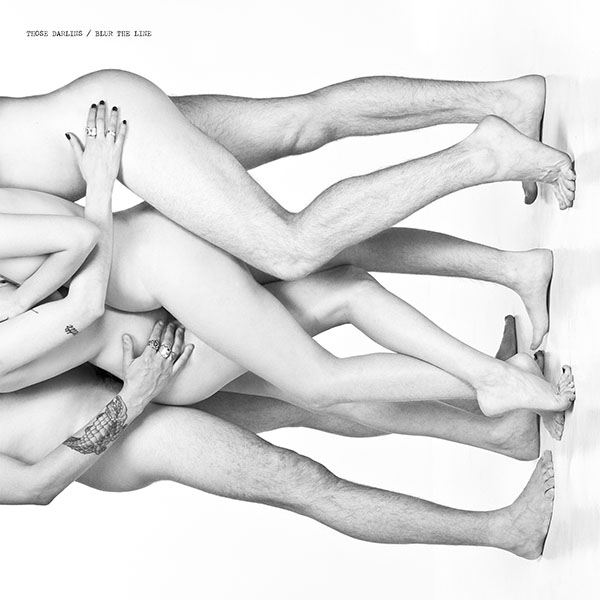

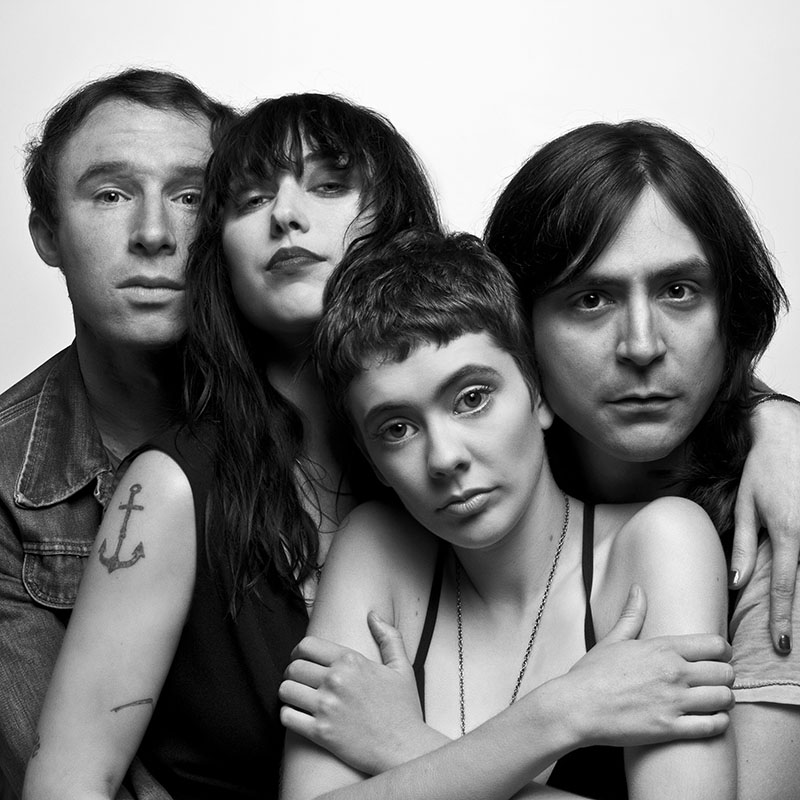
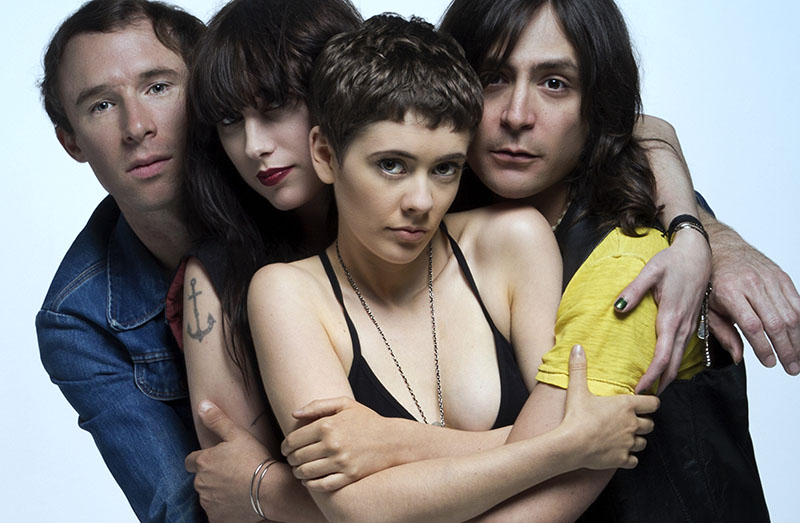
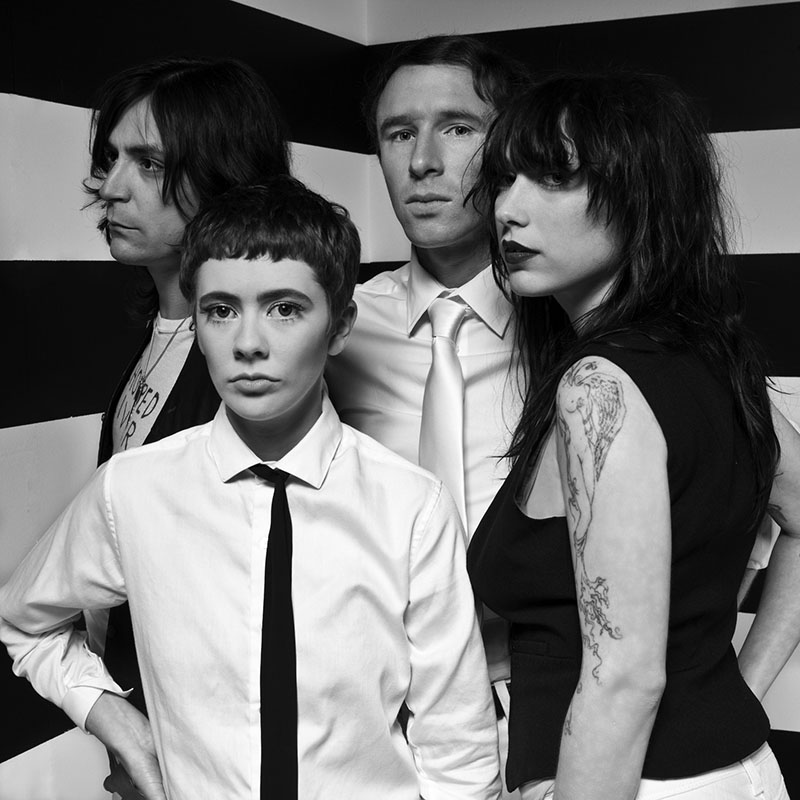

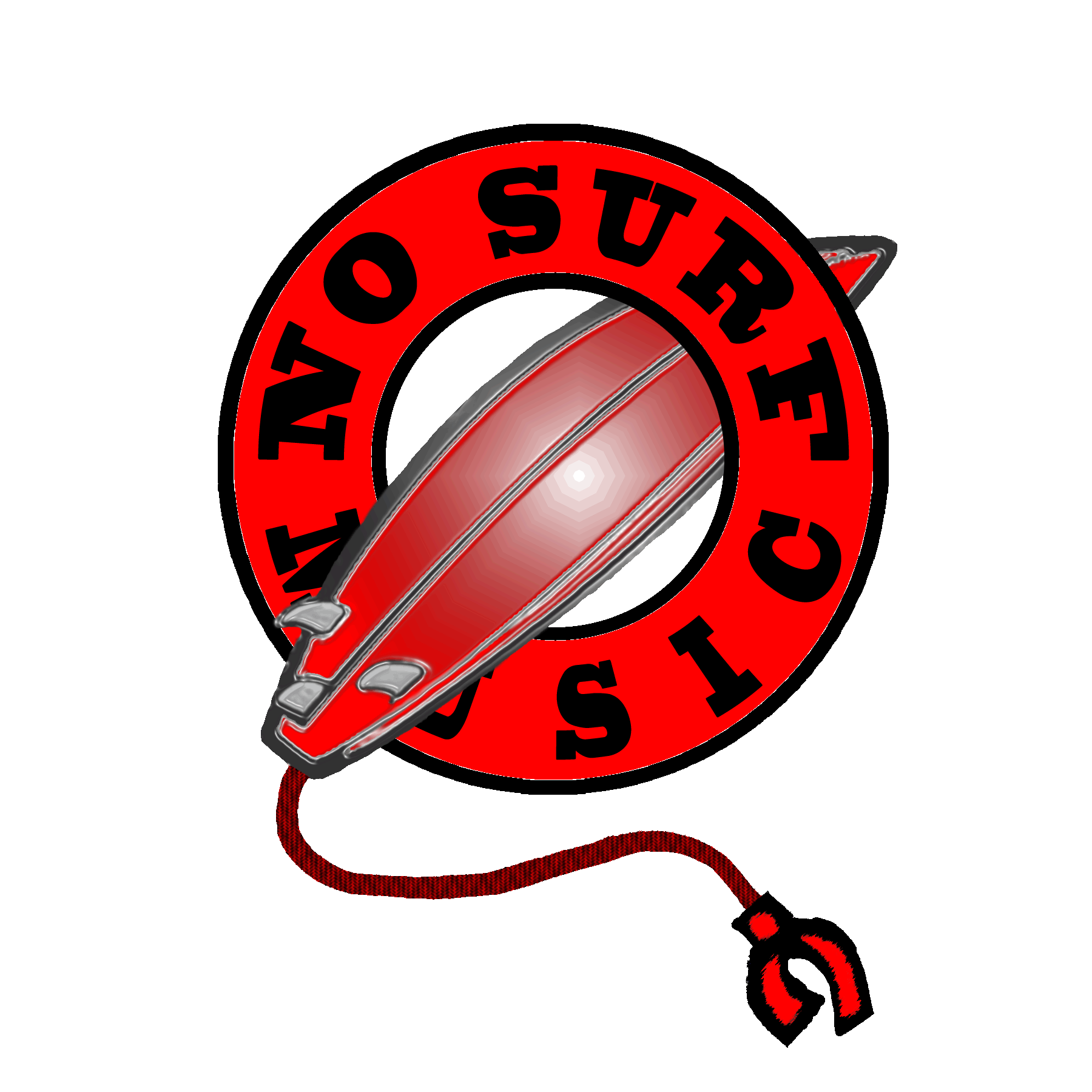
Follow @NoSurfMusic